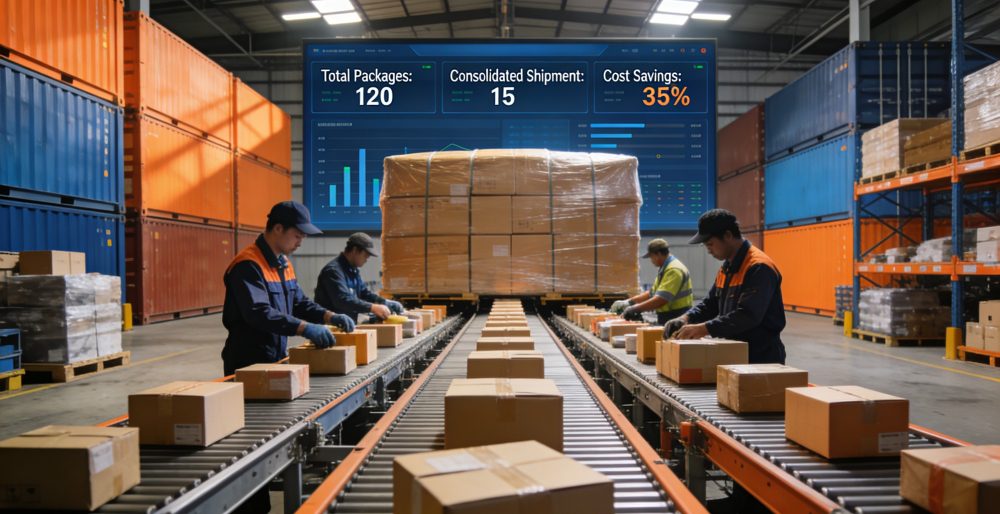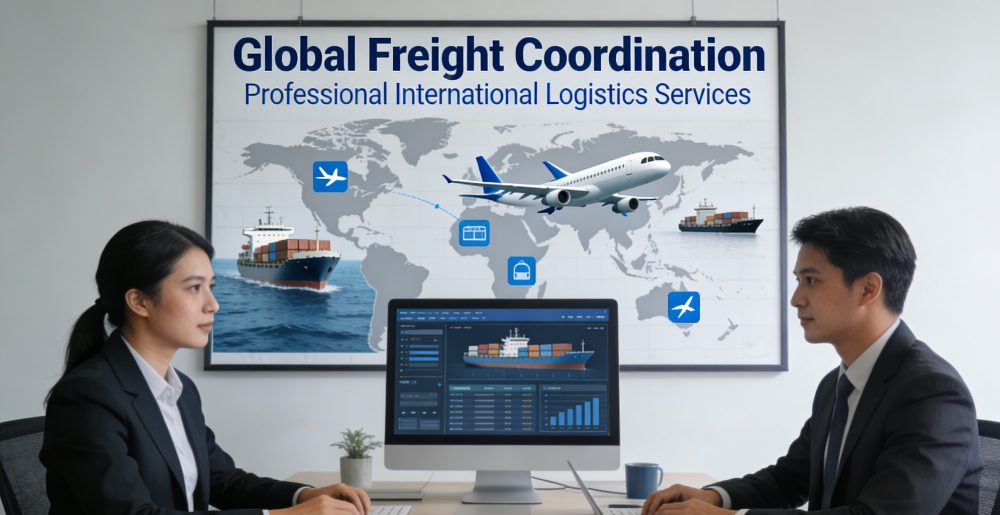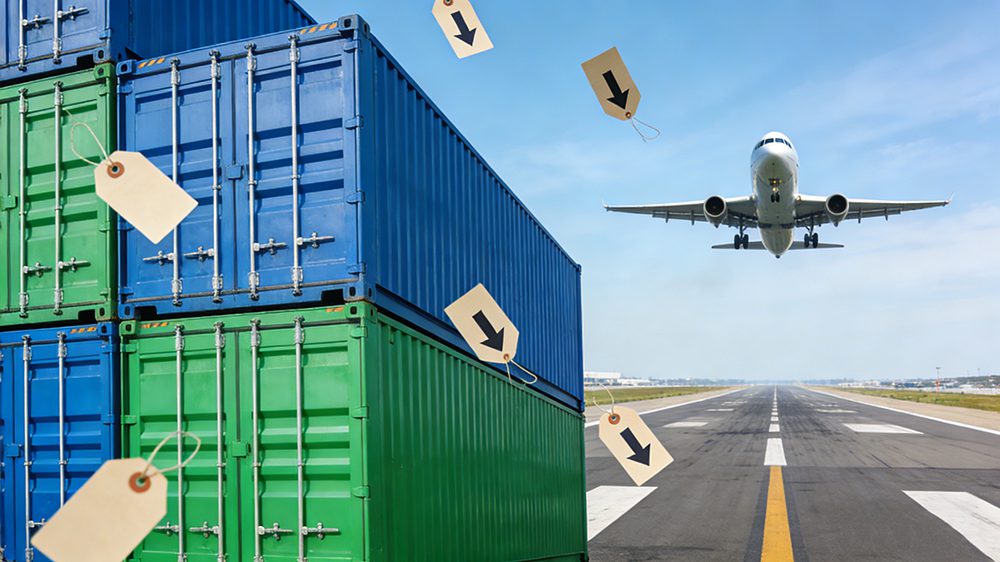BLOG
What is FCL Shipping? Understanding Full Container Load Shipping
- wanmeili
- 2025-03-31
Introduction
In the fast-paced world of international trade, businesses rely on efficient and cost-effective shipping methods for success.Full Container Load (FCL) shipping is one of the most popular and reliable options for transporting goods across borders. FCL shipping allows businesses to book an entire container exclusively for their cargo, ensuring greater control, security, and efficiency. Unlike Less than Container Load Shipping (LCL), where multiple shippers share container space, FCL is ideal for businesses with large shipments or those seeking faster transit times. Thanks to advantages like reduced damage risk, lower handling fees, and streamlined customs clearance, companies looking to optimize their supply chains have adopted FCL shipping as a go-to solution.
What is Full Container Load (FCL) Shipping?
FCL shipping refers to a method of transporting goods where a single shipper books an entire container for their exclusive use. This means the container is filled with cargo from one business only, eliminating the need to share space with other shippers. In contrast, LCL (Less than Container Load) shipping involves consolidating goods from multiple shippers into one container, which can lead to longer transit times and increased handling.
FCL shipping is typically used by large businesses, importers, and exporters who have enough cargo to fill an entire container. It’s also a preferred choice for businesses shipping high-value or sensitive goods that require extra security and care. Containers come in standard sizes, with the most common being the 20-foot and 40-foot options. There are also specialized containers, such as refrigerated (reefer) containers for perishable goods or high-cube containers for oversized cargo.
How FCL Shipping Works
Understanding the FCL shipping process is essential for businesses to ensure smooth logistics and timely delivery. Here’s a step-by-step breakdown:
- Booking and Documentation: The shipper books a container with a freight forwarder and provides necessary documentation, such as the commercial invoice, packing list, and bill of lading.
- Container Loading: The shipper packs their goods into the container at their facility or a designated warehouse. Proper packing is crucial to prevent damage during transit.
- Transport to Port: A truck or rail carrier transports the loaded container to the port of origin.
- Customs Clearance: Customs officials clear the cargo at the port of origin to ensure compliance with export regulations.
- Ocean Freight: Workers load the container onto a vessel, which then sails to the destination port.
- Customs Clearance at Destination: Upon arrival, the cargo clears customs at the destination country.
- Final Delivery: A carrier transports the container to the consignee’s location, and the consignee unloads it.
Timing and logistics are critical in FCL shipping. Delays at any stage, such as customs clearance or port congestion, can impact the entire supply chain.
Advantages of FCL Shipping
FCL shipping offers numerous benefits for businesses, including:
– Cost-Effectiveness: While FCL may seem more expensive upfront, it often proves cheaper than LCL for large shipments due to lower handling fees and reduced per-unit costs.
– Faster Transit Times: Since FCL shipments don’t require consolidation, they typically have shorter transit times compared to LCL.
– Enhanced Security: With no shared container space, the risk of theft, damage, or contamination from other shippers’ goods is minimized.
– Simplified Customs Clearance: FCL shipments usually face fewer delays during customs clearance, as they involve a single consignee and consigner.
– Greater Control: Businesses have full control over how their goods are packed and handled, ensuring better protection for sensitive or high-value items.
FCL Shipping vs. LCL Shipping: Which is Better?
The choice between FCL and LCL shipping depends on the volume and nature of your cargo. FCL is ideal for businesses with enough goods to fill an entire container, as it offers greater efficiency, security, and cost savings for large shipments. On the other hand, LCL is better suited for smaller shipments that don’t require a full container. While LCL is more flexible, it often involves longer transit times, higher handling fees, and increased risk of damage due to shared container space.
Key Considerations for Full Container Load shipment
Before opting for FCL shipping, businesses should consider the following factors:
– Cargo Volume: Ensure your shipment is large enough to justify booking an entire container.
– Container Type: Choose the right container size and type based on your cargo’s dimensions and requirements.
– Transit Time: Plan for potential delays and factor in buffer time for customs clearance and port operations.
– Costs: Compare freight rates, handling fees, and additional charges to determine the total cost of FCL shipping.
– Documentation: Ensure all shipping documents are accurate and complete to avoid delays.
Common Industries That Use Full Container Load transport
Various industries widely use FCL shipping,including:
– Retail and E-commerce: For importing large quantities of consumer goods.
– Manufacturing: For transporting raw materials or finished products.
– Automotive: For shipping vehicle parts or components.
– Food and Beverage: For exporting perishable goods in refrigerated containers.
– Pharmaceuticals: For transporting sensitive medical supplies that require secure and controlled conditions.
Best Practices for FCL freight
To maximize the benefits of Full container load shipping, businesses should follow these best practices:
- Optimize Packing: Use proper packing materials and techniques to protect your goods during transit.
- Choose the Right Container: Select a container size and type that suits your cargo’s needs.
- Work with a Reliable Freight Forwarder: Partner with an experienced freight forwarder to handle logistics and documentation.
- Plan Ahead: Book your container well in advance to secure space and avoid last-minute delays.
- Monitor Shipments: Use tracking tools to stay updated on your shipment’s status.
Conclusion
Businesses involved in international trade consider full container shipping a powerful solution, offering unmatched efficiency, security, and cost savings for large shipments. By understanding the FCL process, advantages, and best practices, businesses can make informed decisions and optimize their supply chains. Whether you’re a large importer, exporter, or manufacturer, FCL shipping can help you streamline operations and deliver goods to your customers on time. Ready to take your logistics to the next level? Contact a trusted freight forwarder today to get started.
Related Posts



